United States Patent Office Finds Artificial Intelligence System Cannot Be An Inventor
April 29, 2020
- The United States Patent Office limits inventorship to “natural persons.”
- Under current U.S. patent law, identifying an Artificial Intelligence (AI) system as an inventor is improper.
- Both the UK and the European Patent Offices had previously reached similar conclusions.
The United States Patent Office (USPTO) recently published a petition decision in a pending patent application explaining that under current U.S. patent law, an AI system may not be listed as an inventor.
On July 29, 2019, Stephen L. Thaler filed a patent application at the USPTO for “Devices and Methods for Attracting Enhanced Attention.” The application listed “DABUS (the invention was automatically generated by artificial intelligence)” as the sole inventor of the application. DABUS stands for “Device for the Autonomous Bootstrapping of Unified Sentience,” and is an AI system developed by Mr. Thaler.
Shortly after receiving the application, but before any substantive review, the USPTO issued a “Notice to File Missing Parts of Nonprovisional Application” indicating that the application was incomplete because it did not “identify each inventor by his or her legal name.” Mr. Thaler petitioned for a supervisory review of the notice. When that petition was dismissed, he subsequently petitioned the Commissioner for Patent for a reconsideration of that dismissal.
In denying the petition to vacate the Notice to File Missing Parts, the USPTO stated that “because the above-identified application names a machine, ‘[DABUS] (Invention generated by artificial intelligence),’ as the inventor, and because current statutes, case law, and USPTO regulations and rules limit inventorship to natural persons, the above-identified application does not comply with 35 U.S.C. § 115(a).”
Both the United Kingdom Intellectual Property Office (UKIPO) and the European Patent Office (EPO) arrived at similar conclusions under their respectively legal standards, denying patent applications naming the same DABUS AI system as the inventor. The UKIPO published its decision in December 2019, and the EPO published its decision in January 2020. The EPO provided two primary reasons: (1) an inventor must be a “natural person,” as set out by the European Patent Convention; and (2) an AI system cannot own the rights to a patent because it has “no legal personality.”
Although the USPTO, UKIPO, and EPO decisions seem to quash the idea of AI generated patents, the conversation on AI and intellectual property is just beginning. Mr. Thaler has pending applications in several other jurisdictions, which may arrive at different conclusions regarding AI inventorship. Within the past year, both the World Intellectual Property Organization (WIPO) and the USPTO have solicited comments on various issues concerning the relationship between AI and intellectual property policy. Certainly, the USPTO’s recent petition decision leaves open questions concerning whether a natural person directing the AI system may be properly named an inventor, or whether AI generated inventions may be protected by patents at all.
While for many companies this decision may not have any immediate impact, it serves as a reminder of the importance of reviewing inventorship when preparing your patent applications. Here are some basics with respect to U.S. Patent Law:
- To be deemed an inventor, an individual person must have made a material contribution to the conception of the invention. Simply taking part in the reduction to practice of the invention does not make an individual an inventor. The conception must be complete so that any person skilled in the art would be able to reduce the invention to practice using no more than routine experimentation.
- The rules for inventorship are much stricter than guidelines used in determining co-authorship in a technical paper. Typically, anyone who has any involvement in a development is listed on publications relating to that development. However, many such individuals might not be deemed inventors.
- A person suggesting a desired goal, without knowing how to achieve the goal, is not an inventor. Stating the result desired, and directing others to discover the means to achieve the desired result, does not amount to invention.
- In some circumstances, improper inventorship can render issued U.S. patents unenforceable.


